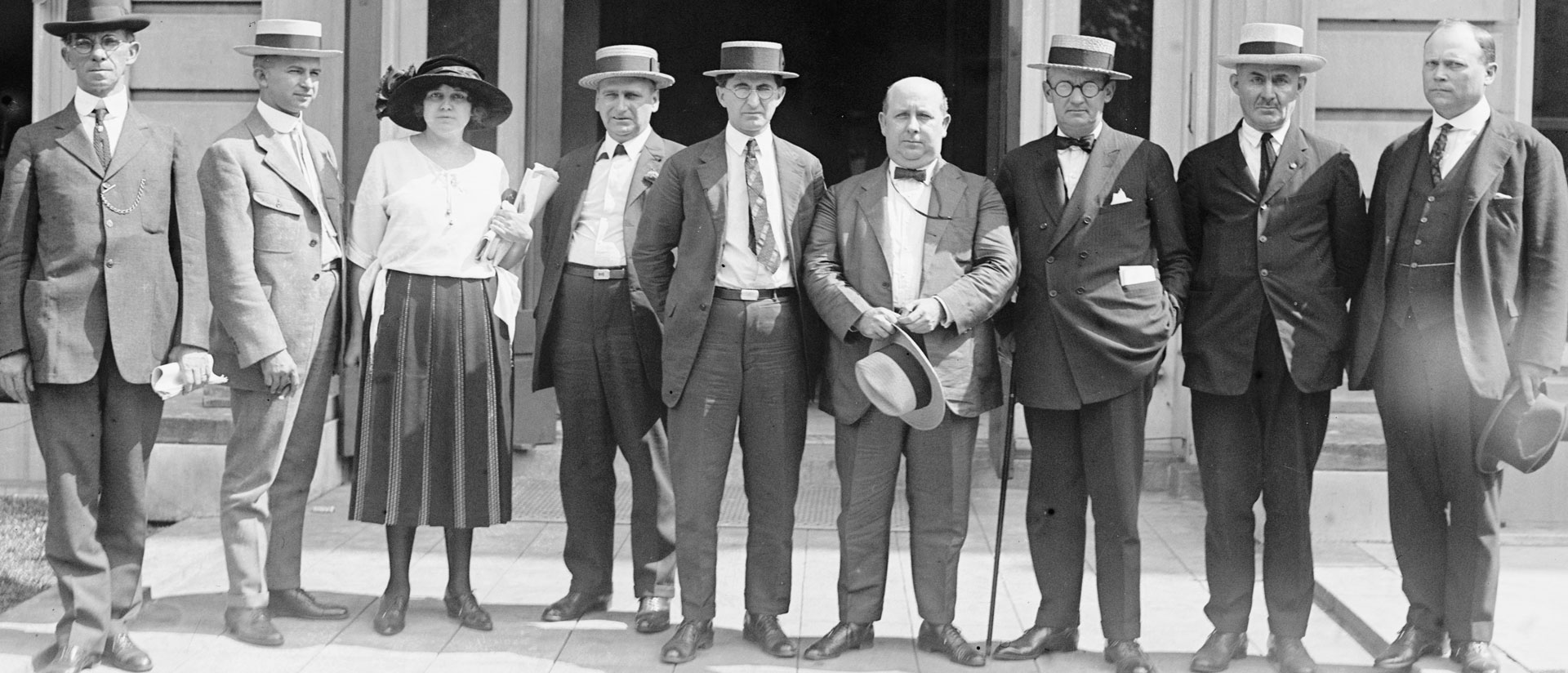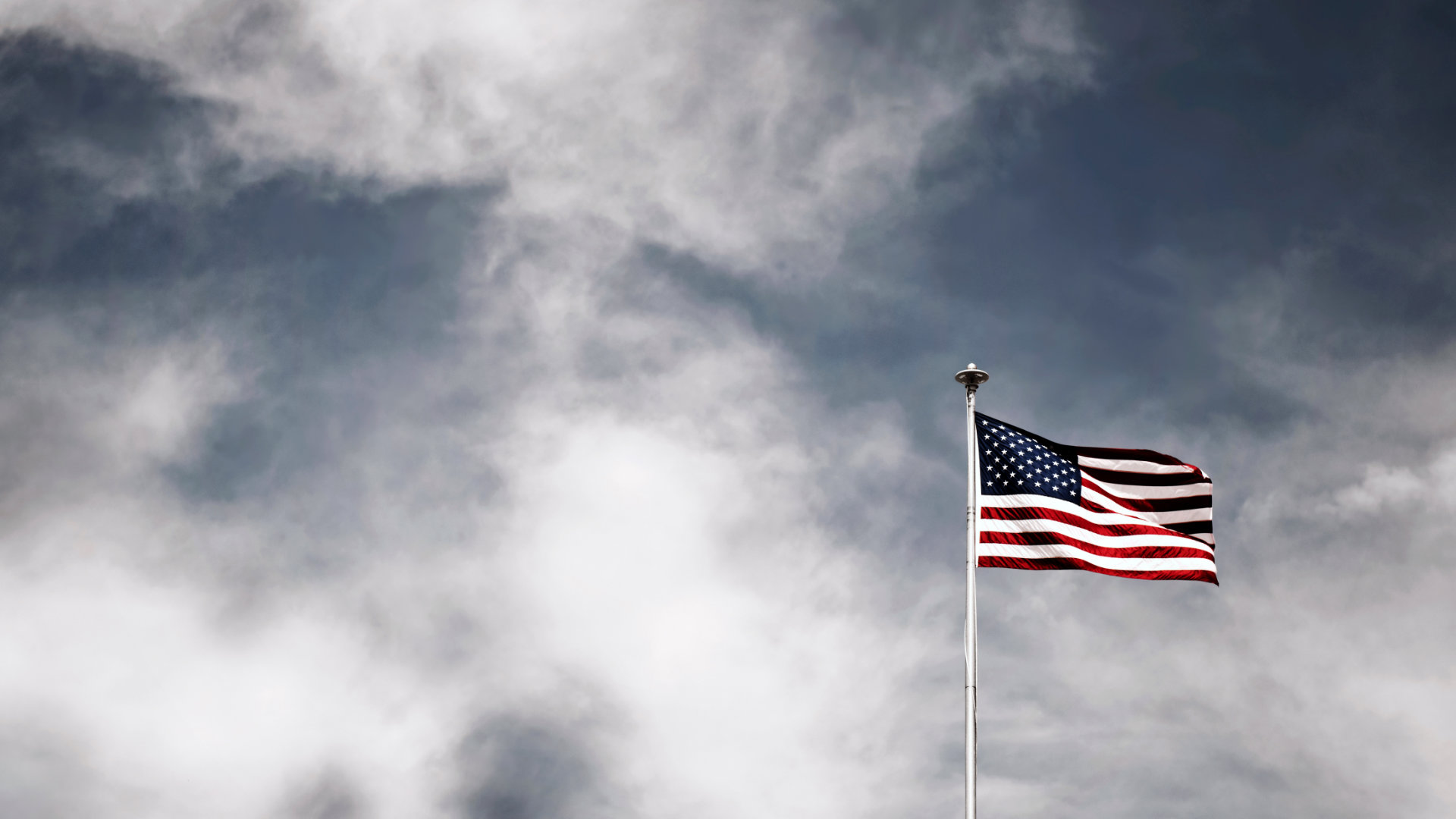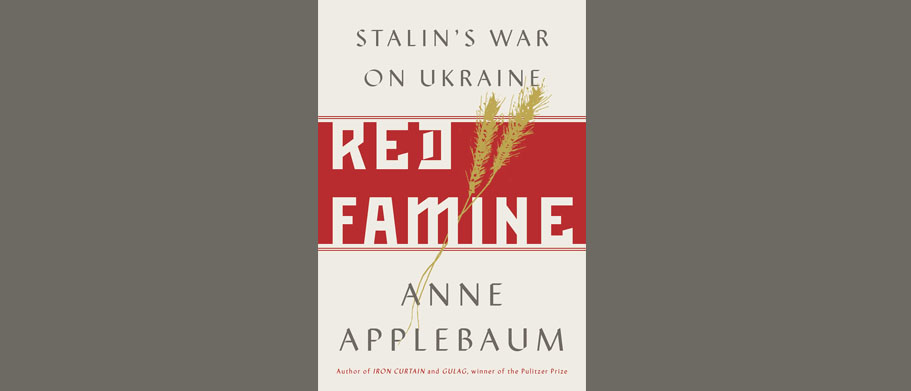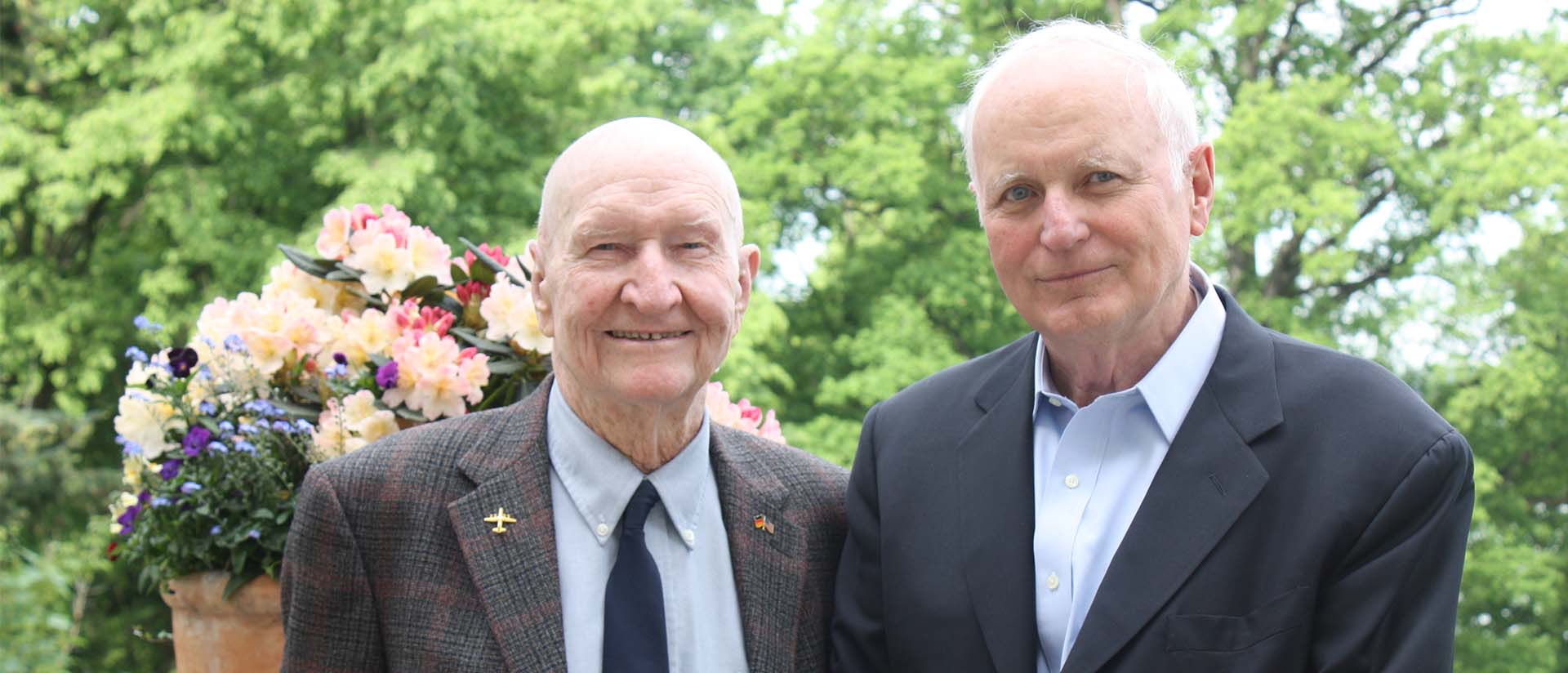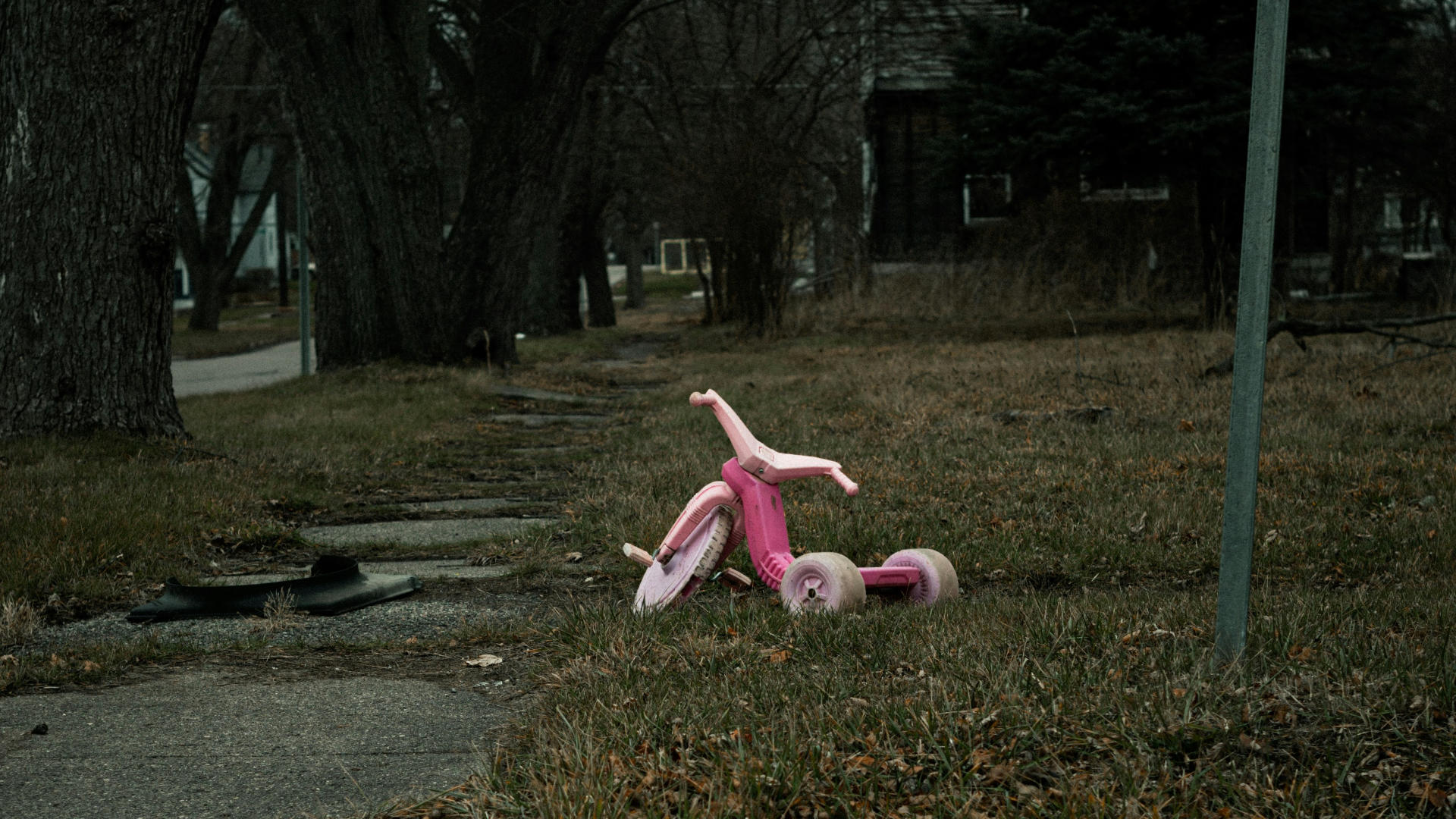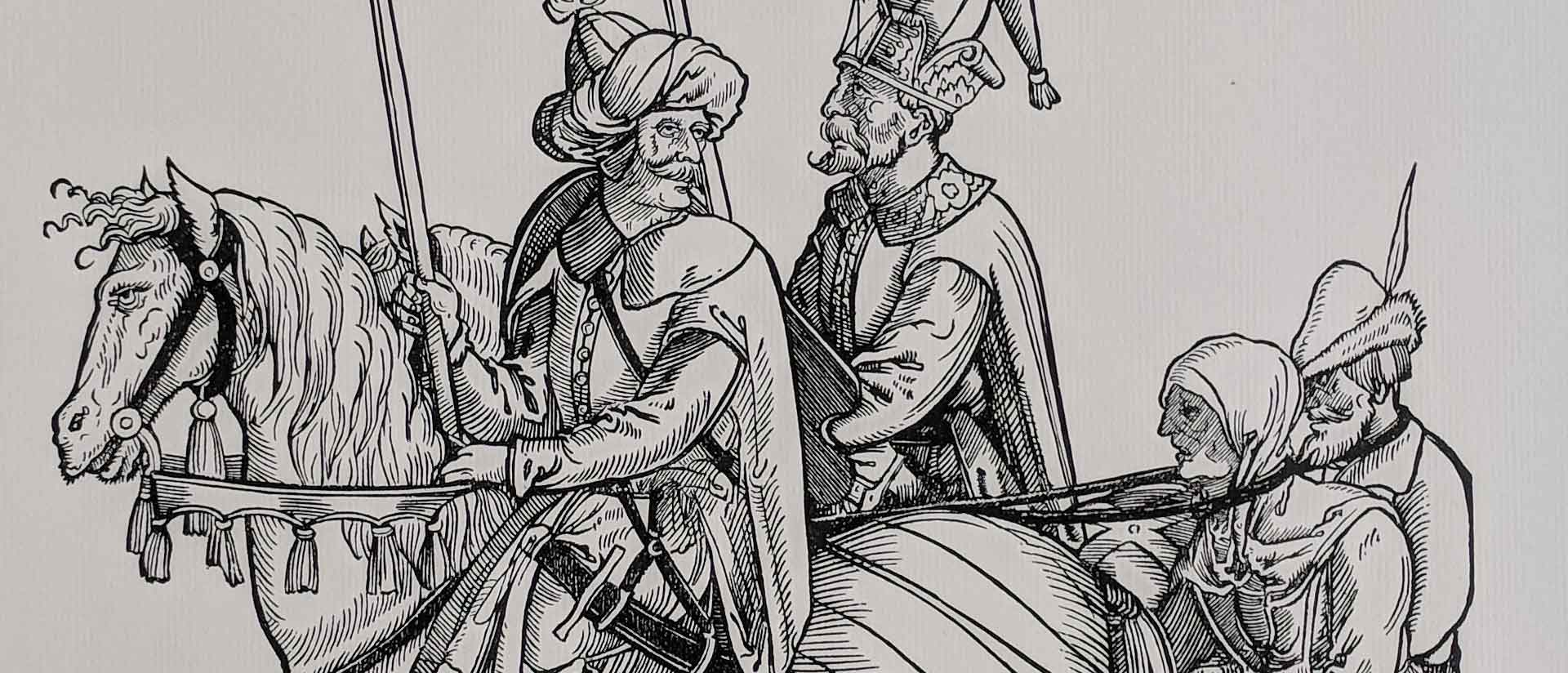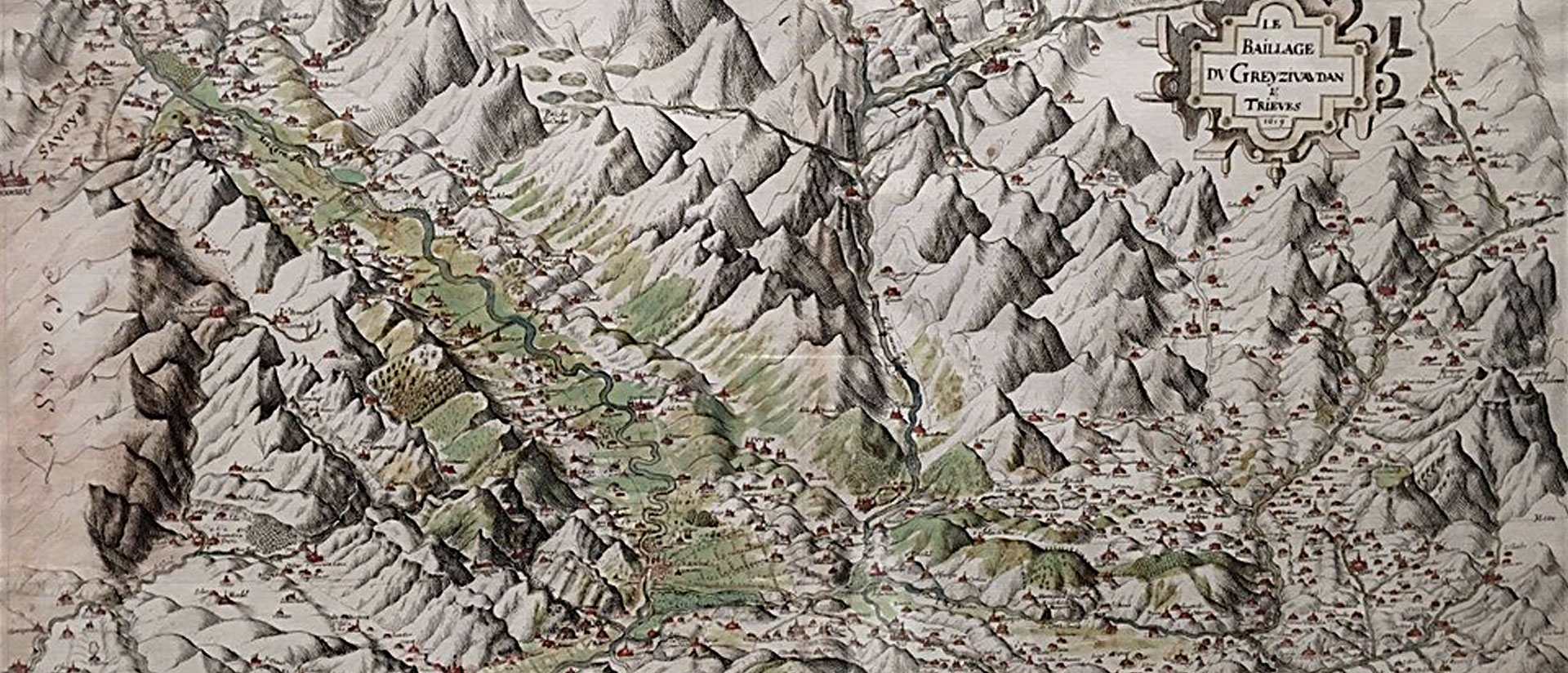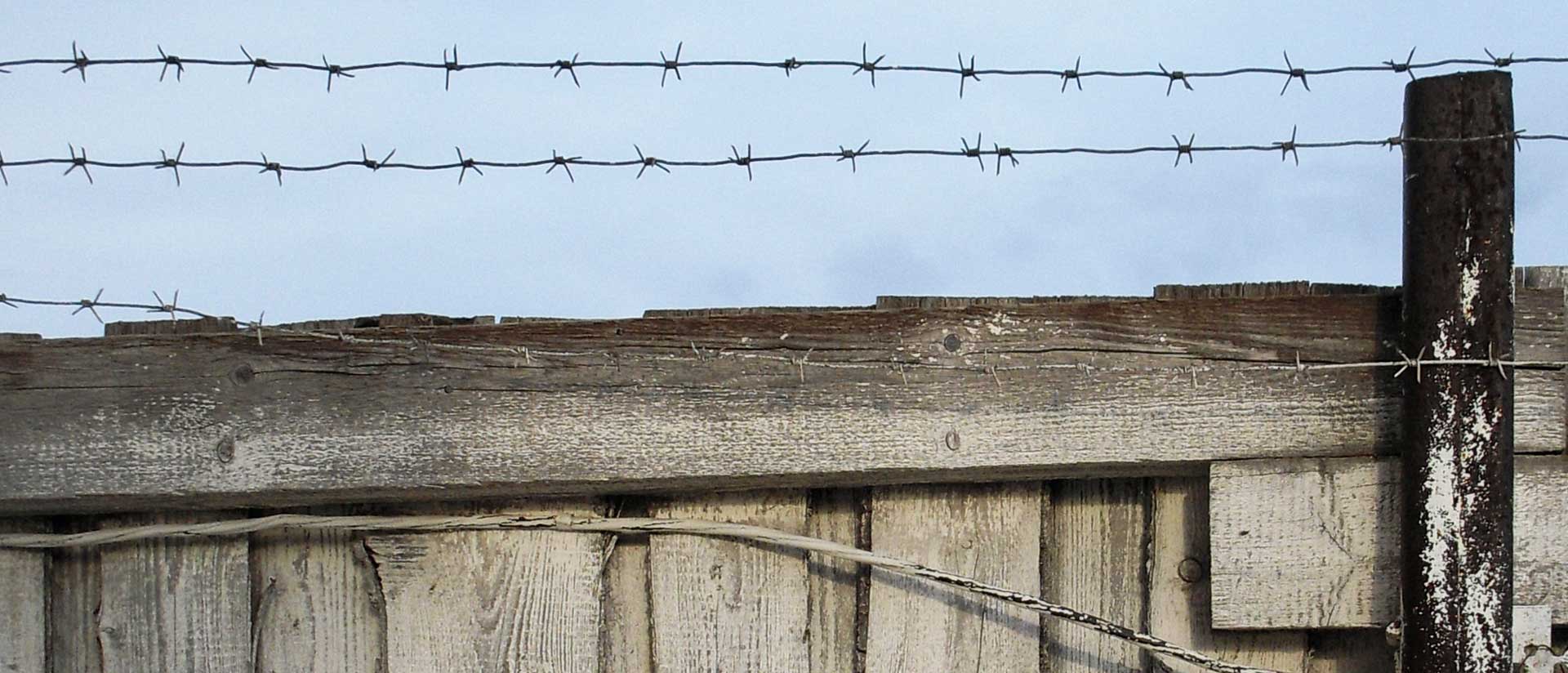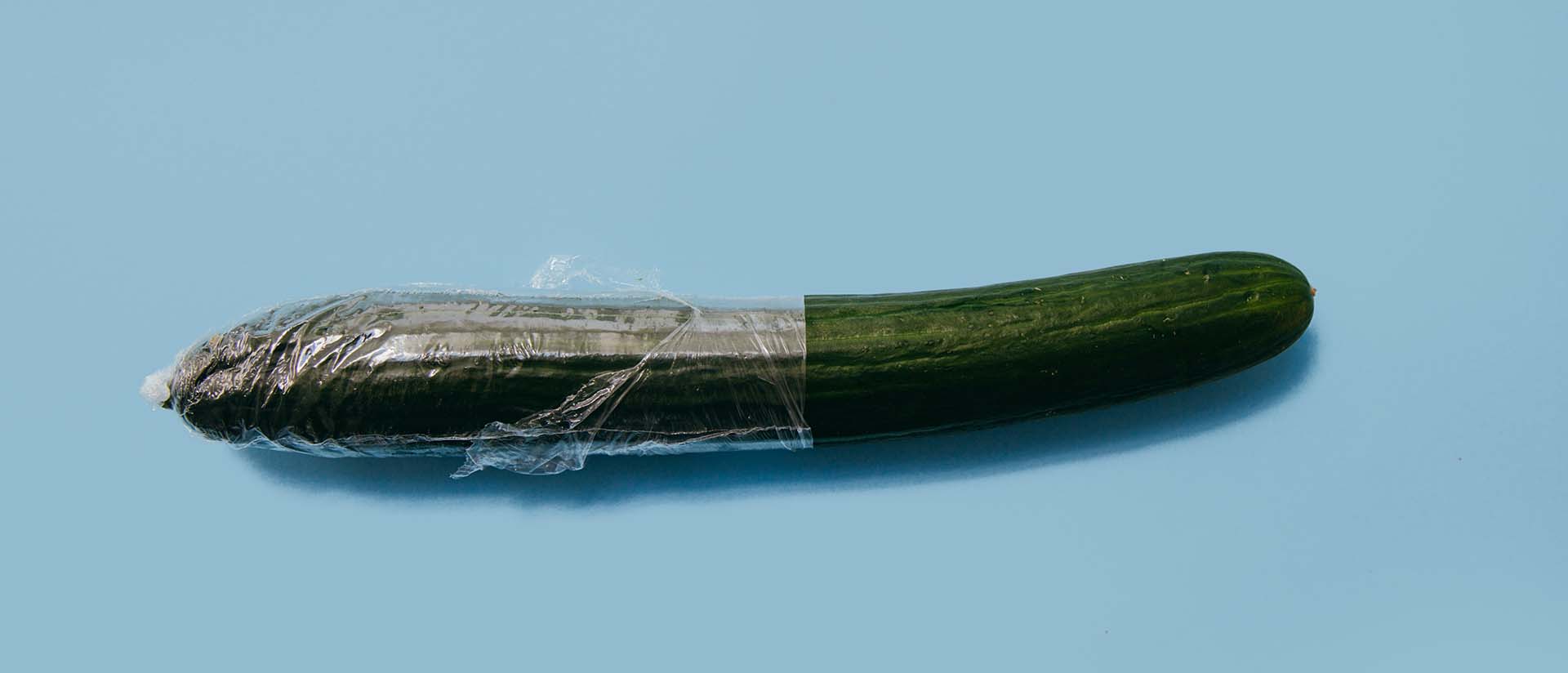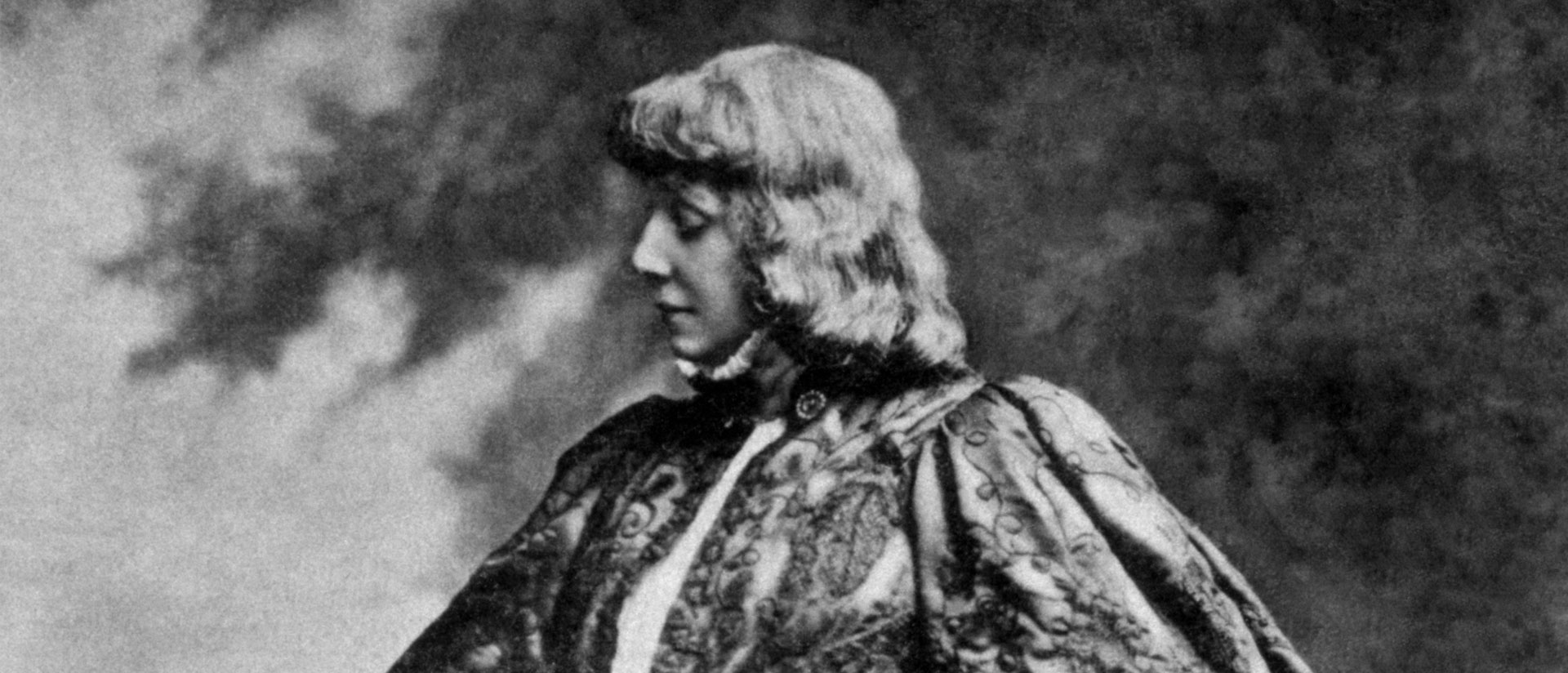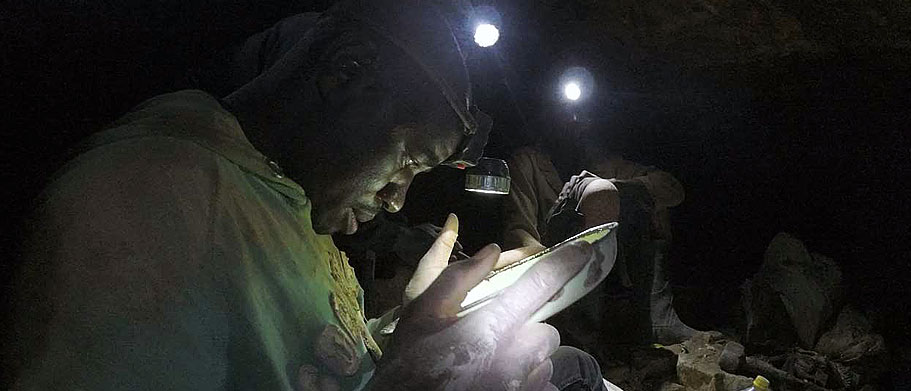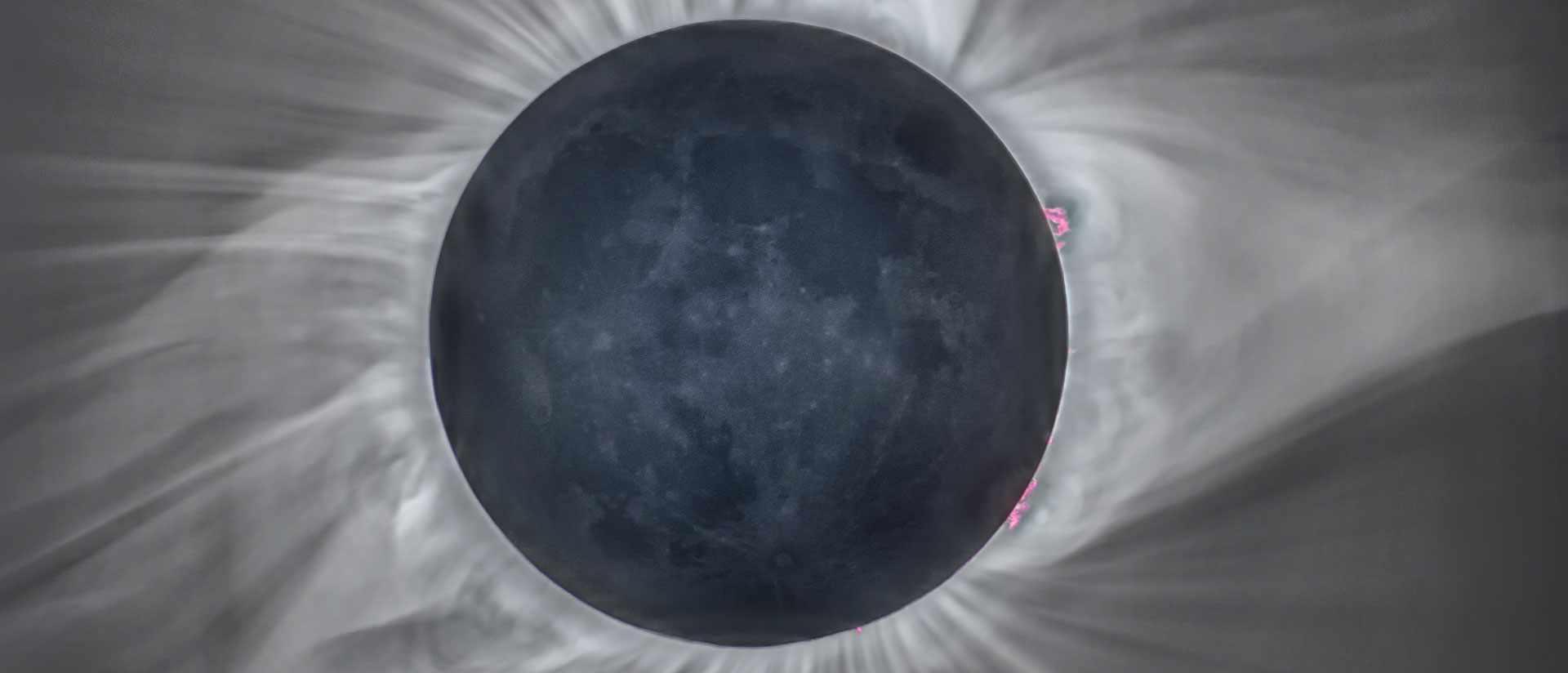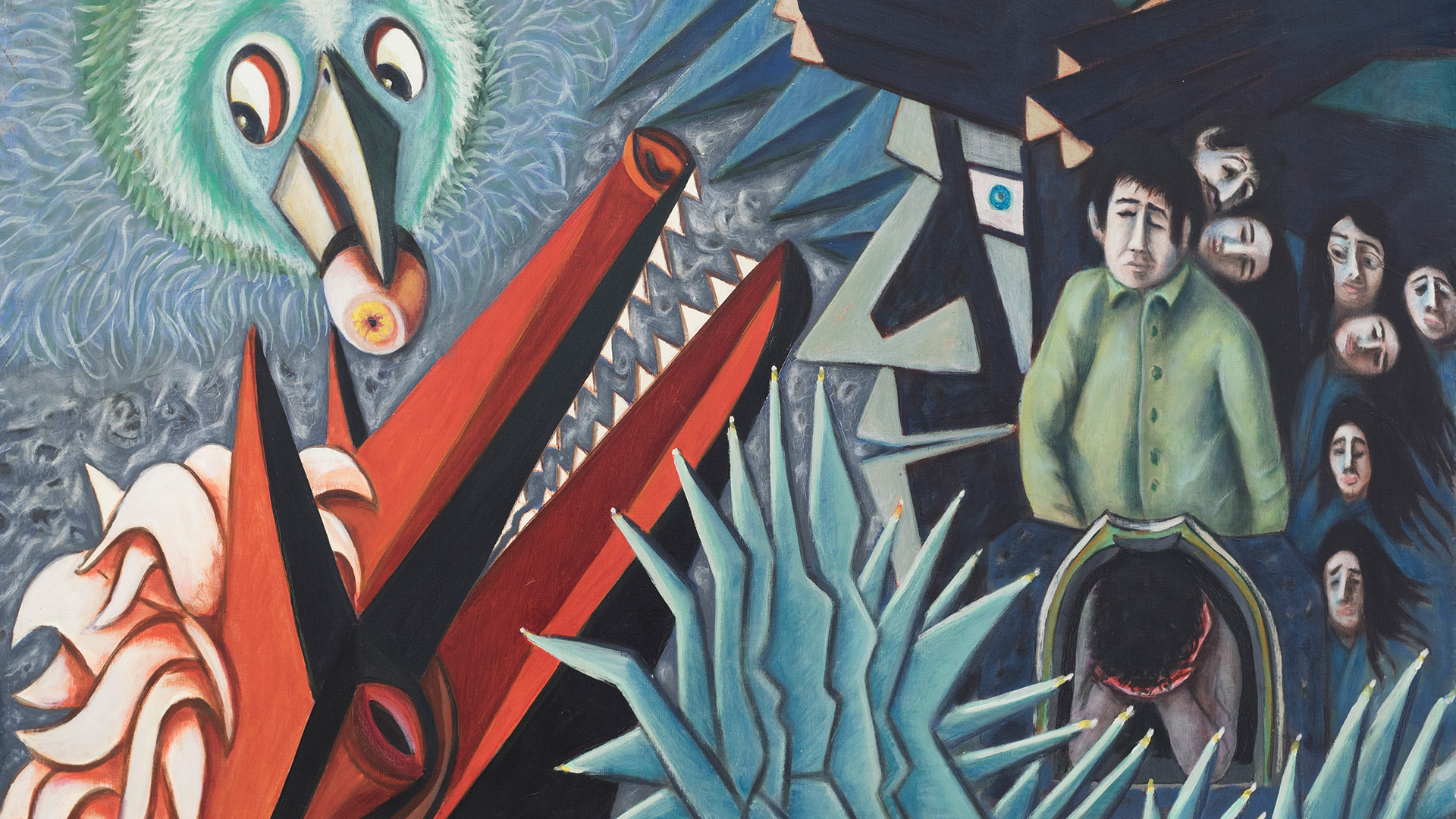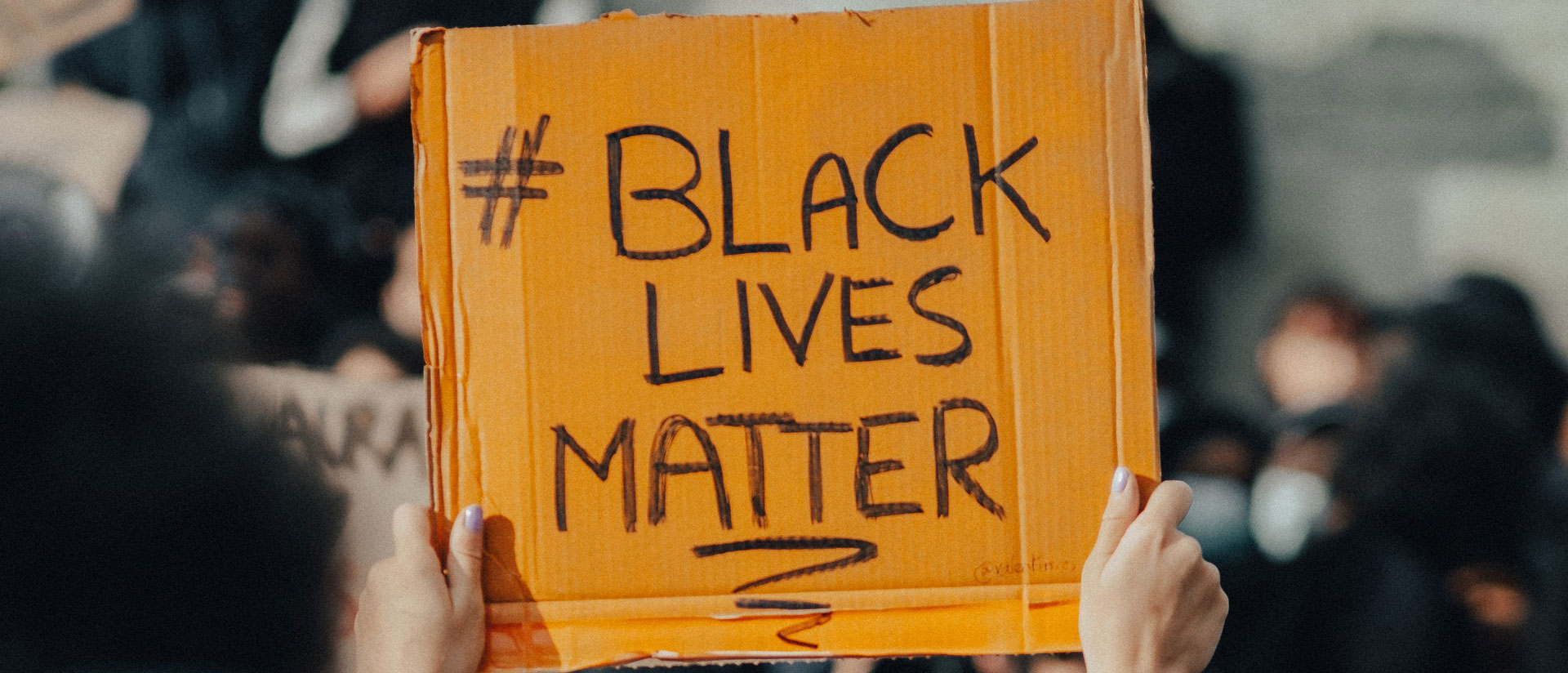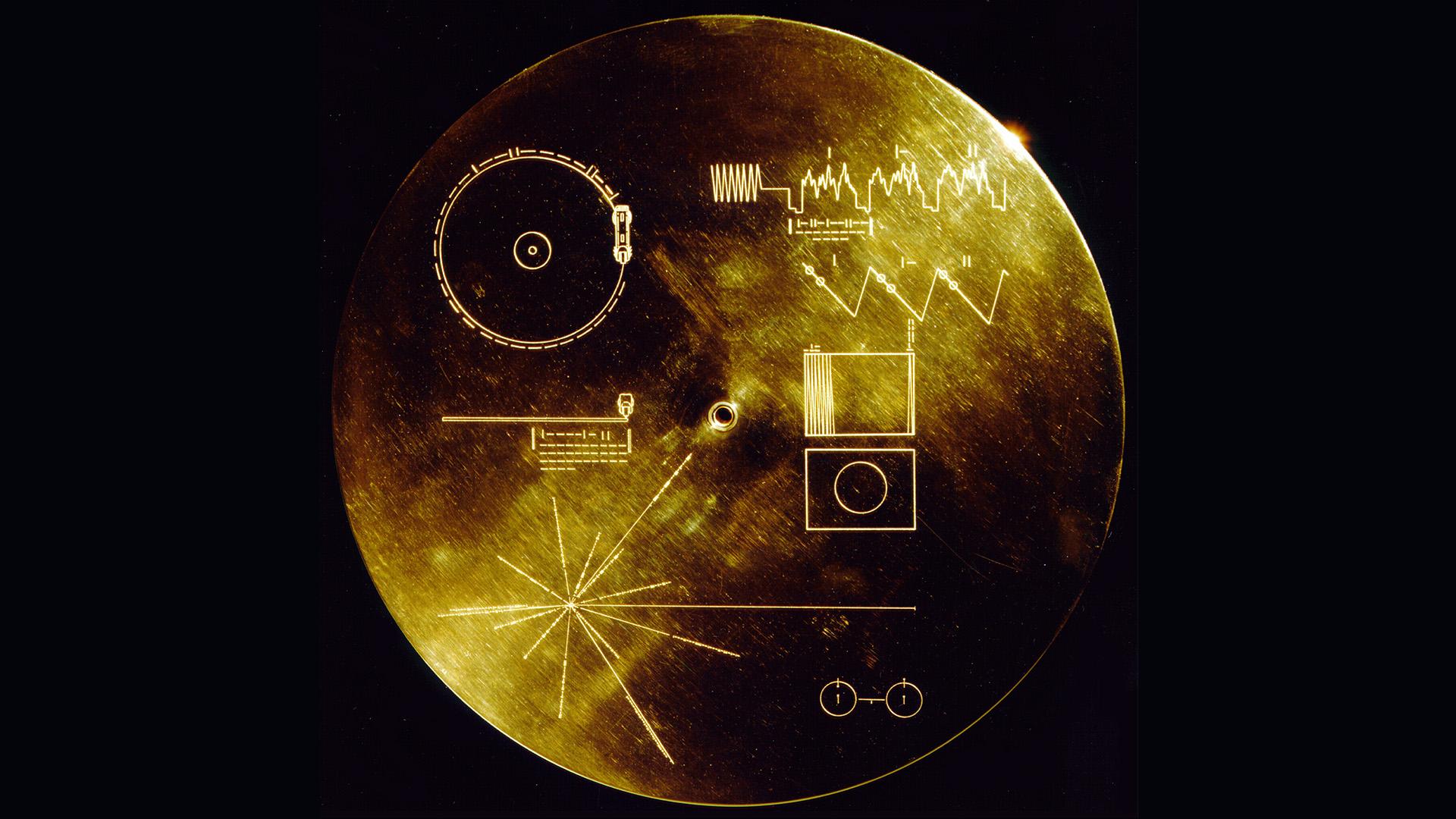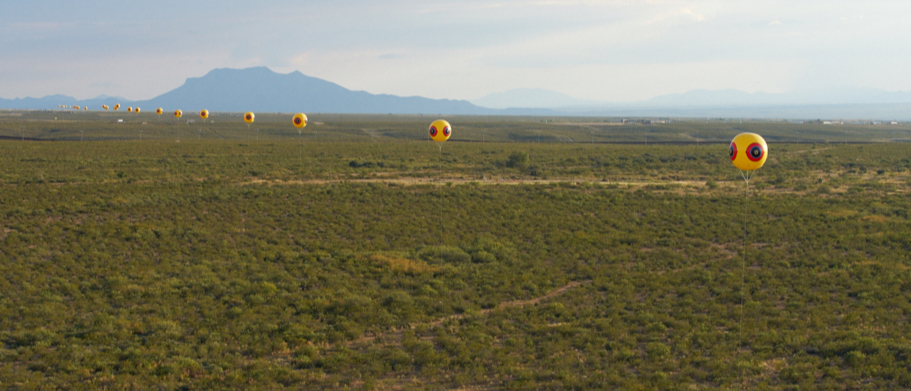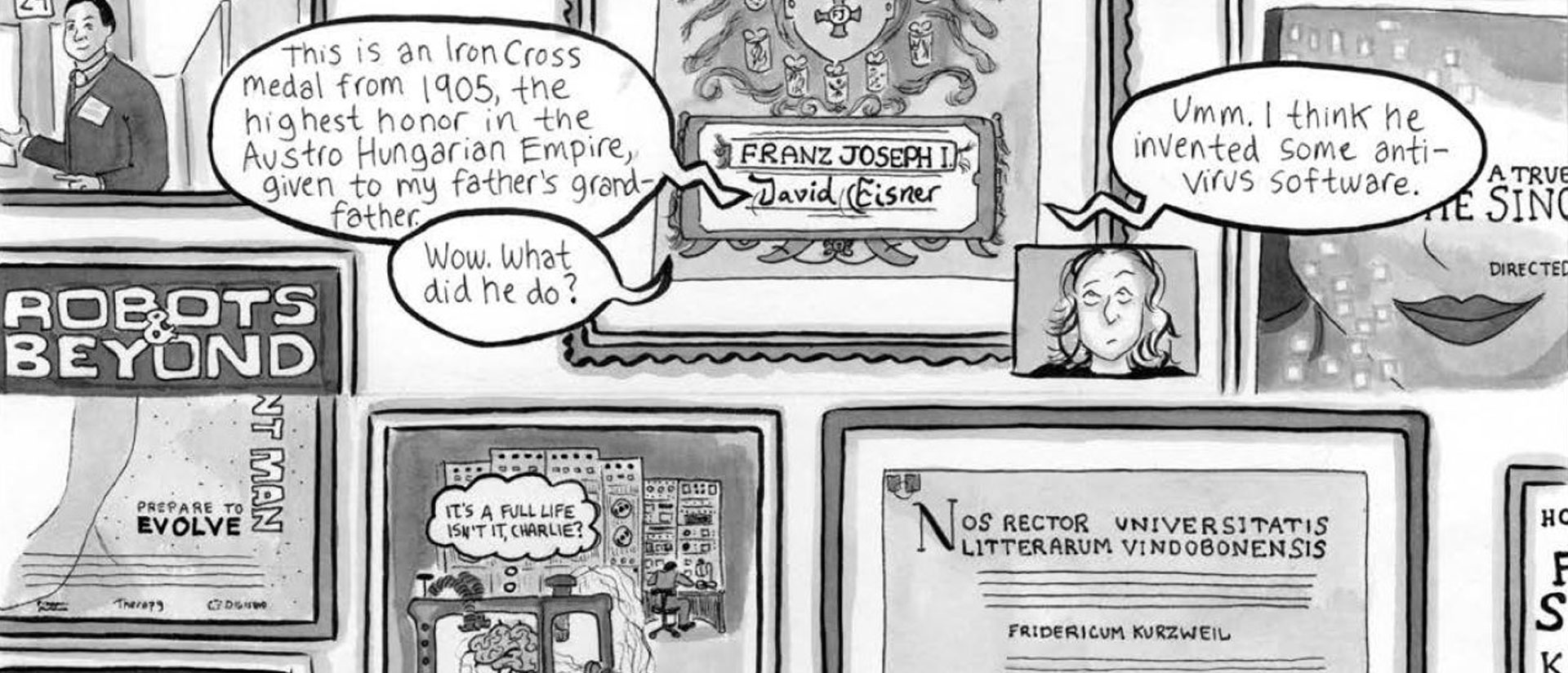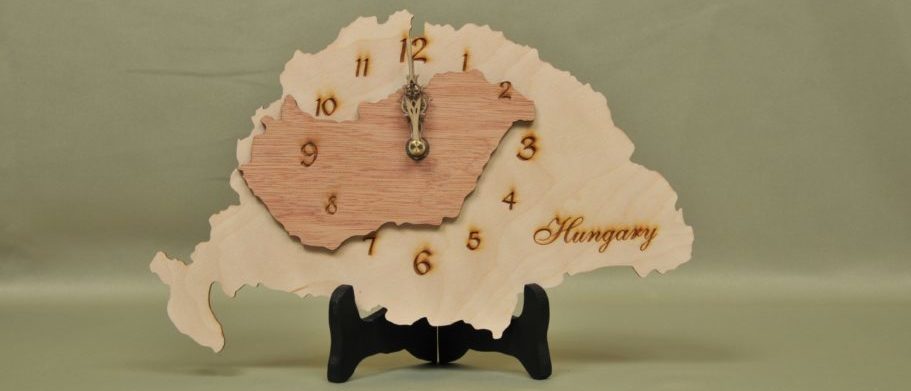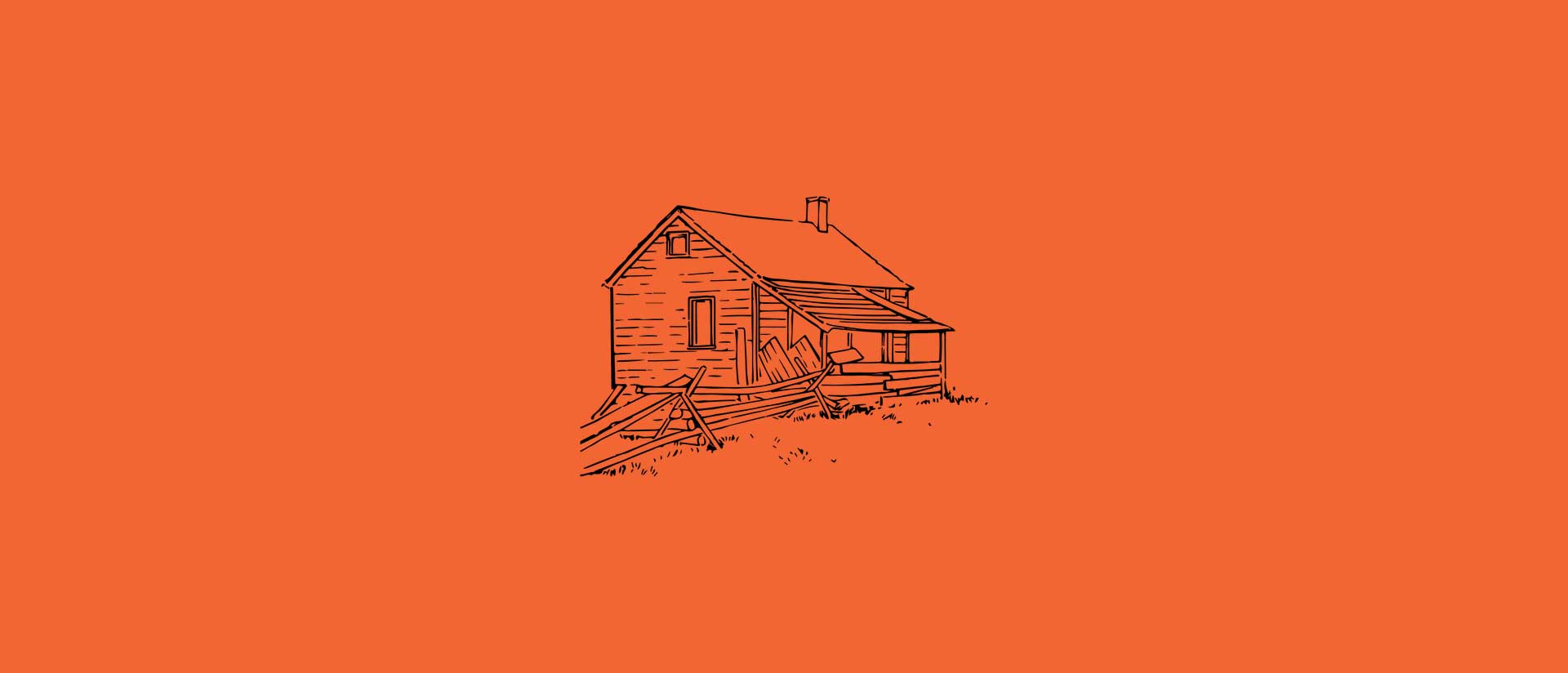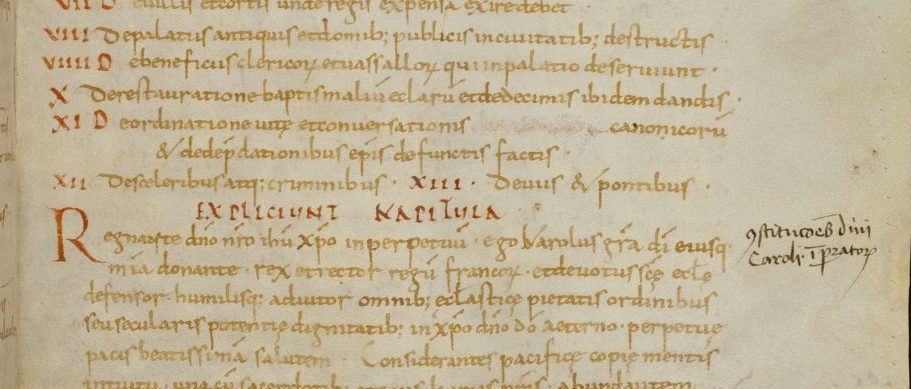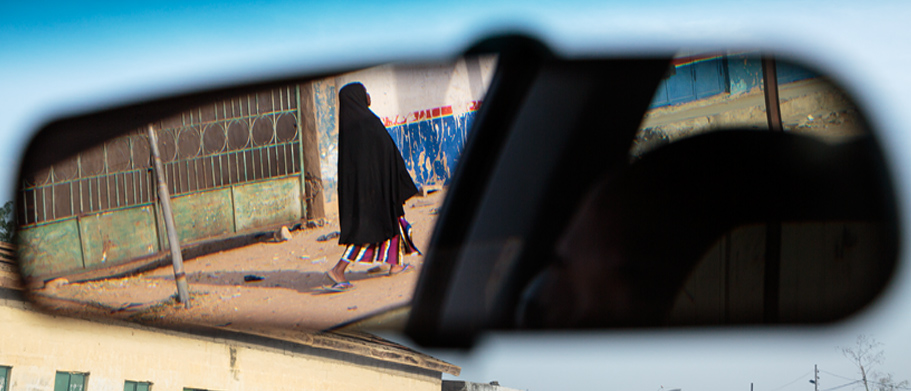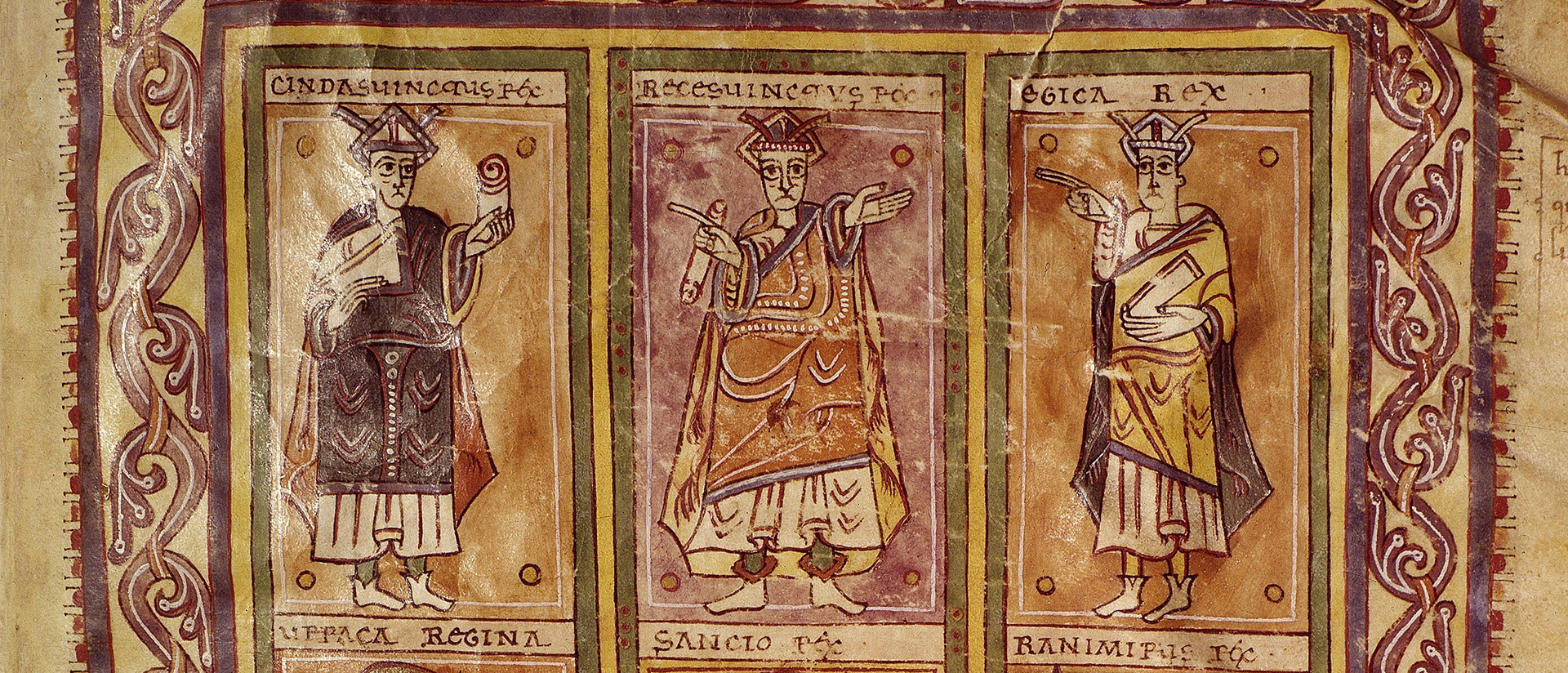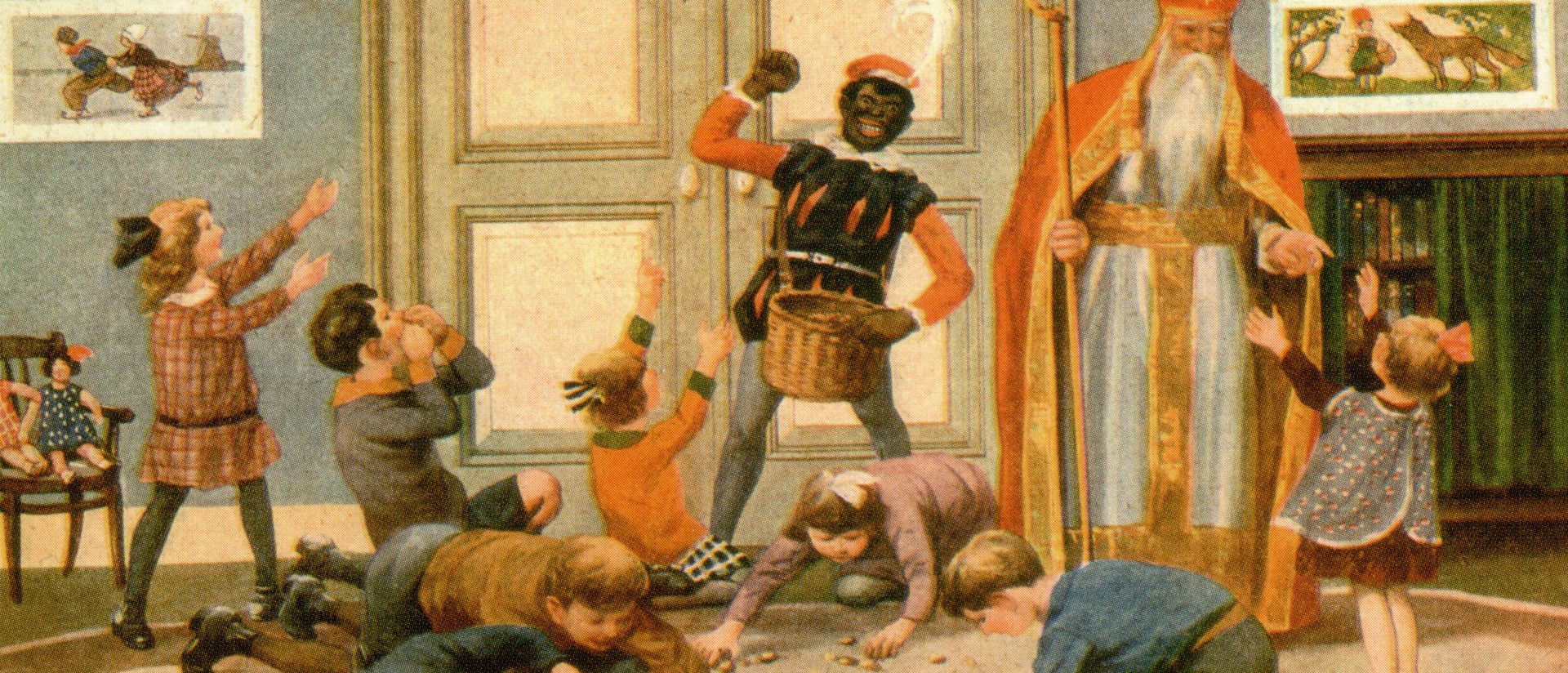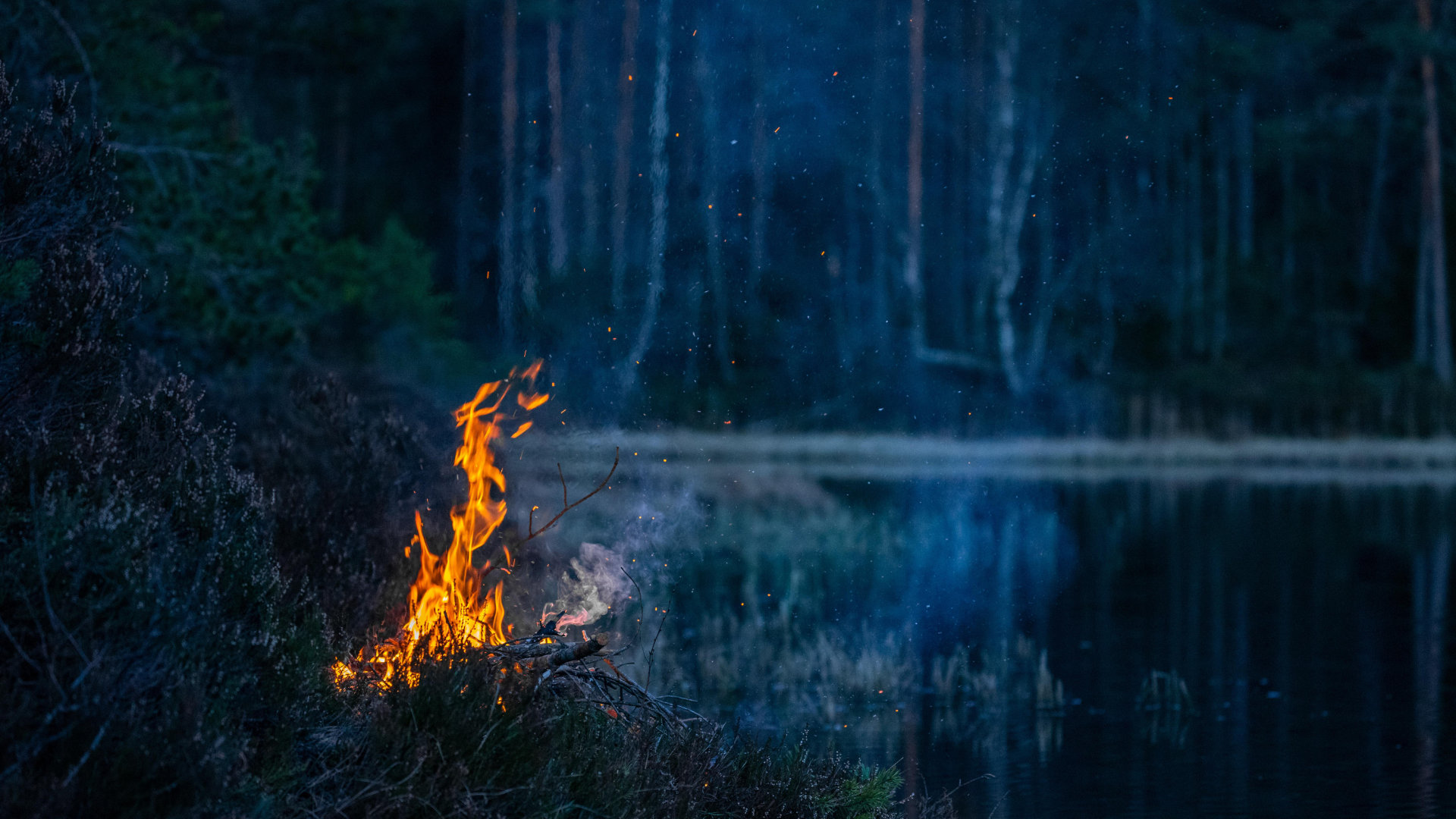
The Night Woman
Fiction by Lauren Groff
A sudden scream in the dark woods in her dreams.
She woke fully when the sound came a second time, and she knew it was not a dream, it was a two-toned bloody woman’s scream starting high then dipping low, chased by an owl shouting Who-who-who.
Precisely, old bird. Who.
Because now that the wakened world was pouring in, the impossibility also poured in: there could not be a woman out there in the dark woods, screaming.
Not after the great catastrophe.
Which had gone fuzzy in its particulars in her mind.
Which wasn’t so surprising, she had been out here in the woods all alone for so very long.
Though, as there were no clocks or calendars and she had been extremely lax in cutting the daylines into the shitter wall, the time she had been out here could no longer be accurately counted, alas.
Perhaps she had arrived when the paths were muddy and there was a paper-thin ice around the edges of the pond, but no, perhaps she had arrived in the full swelter of the hot season; there were enormous wasp nests in the rafters of the cabin.
So much had begun slipping from her.
Now the scream came a third time, and this time it showed itself somehow funny, not terrifying, and the understanding arrived that it must a scream from a rutting fox. Or a, what do you call it, a fisher cat.
Perhaps she had read once that fisher cats had been so plenteous at the time of the first colonists and had screamed so like women that the suspicious Europeans thought the forests were full of roving witches, devils, shades of the dead, fornicating under the full moon in their pale writhing orgies.
Where said fact came from she had no idea. Must have been a book.
Awful that, out there in the dead world, in the terrible silence and stillness of the after, there were vast libraries moldering, that all those careful words accumulated on the shelves were being eaten up by mildew and damp and quick little silver bugs and cockroaches, millions of words drifting away every single day.
The whole forest was braced for the creature to scream a fourth time. She too lay rigid in the cot, holding her breath.
But the creature, whose whole career out there hinged on its mastery of surprise, would not.
She unearthed herself from her many sleeping bags and blankets and rose into the cold and poked at the em- bers, blowing, until the fistful of twigs caught fire and the splinters at the edges of the logs caught as well, then the logs at last began to burn.
She poured water out of the big bucket into the kettle and nestled it into the fire. She took out the coffee beans, which were dwindling like everything else, and ground some.
The last thing of the before that she remembered was being in her car, and the voice on the radio had said something so appalling, she saw her hand floating forth to twist it off, she twisted the voice off and drove blindly, panicked, and then, coming near a great box store, she abruptly pulled in and ran in, and filled as many carts as she needed with sleeping bags, blankets, beans and rice and cans and sugar and salt and flour and coffee and spices and vinegar and oil and chocolate chips and matches and batteries and lanterns and kerosene and candles and a can opener and duct tape and plates and cups and forks spoons and knives and kettles and pans and multiple frighteningly large knives and hatchets and axes and six pairs of running shoes and flannel shirts and tee shirts and undies and jeans and socks and work gloves and a rainbow fleece beanie and storage bins and a backpack and Castile soap and vitamins and iodine and bandages and medicines and tampons and toothbrushes and toothpaste, et cetera, something like ten carts full.
The cashier smirked when she maxed out one credit card but he didn’t understand that credit was already a figment of the before and she maxed out her debit card, too.
Obviously, the cashier was not the kind of person who cared about the news. She met his scorn with a godlike pity. He was about to be dead, like everyone else.
The car, which was roomy, a station wagon, was so crammed that she had to drive with a fifty-pound bag of rice on her lap out of the city.
No time to stop at her apartment. She had everything she needed but the cat, and the cat was already lost. Sad. It was a nice cat. It would have helped with the mice, the loneliness. It was either white or orange. Surely, it once had a name. In any event, there had been no panic on the roads, not for hundreds of miles, and there was still gas at the general store when she topped up the car in the town closest to the cabin, in that place where people of the city, and their panics, were viewed with skepticism.
Though of course it was true that the people of the country should have been panicking too.
As they would come to see.
And the cabin was still over thirty miles from that little village, also, including the class-four road where she hid her car, it took a full half-day to hike out from it to take an armful or backpackful of the stuff back to the cabin, something she did over and over again in the first weeks until the station wagon was empty of everything, including the driver’s seat and the carpet in the back, which she had laid on the dirt floor of the cabin, and which was very filthy now but still felt like a luxury.
It was a very good little cabin. The shell to her nut.
She loved it so.
The cabin was at the crux of three separate vast forests, owned by two states and a township, and there- fore belonged to none. It belonged to itself, sovereign.
She supposed that this is why the cabin had called to her urgently out of the decades before, when she was young and used to hike for fun. She had first seen it with a man, perhaps. She remembered him between her legs, pressing her back against the rough bark walls, very nice. The man’s face had grown over in her mind with smooth skin, however.
Like everyone else’s face, including her mother and father, including her little brother.
Her brother’s name, also, having faded away as well.
Only the heaviness of childhood Sunday dinners lingered, starched dress and table prim with roast cow and beans, the something something, the bitterness, in the air, mother and father’s words sniping like bullets past each other’s heads and her little brother’s hand finding hers. This, she remembered.
And her own children’s hands, sweaty and curled when they were small, their faces too were blank. But she couldn’t think about them, what happened to them. No.
In the window there was a light at the top edge of the trees, which she thought was the great round silver coin of the night dashing its last light to the ground, at least until the ground itself began to grow yellow, and she knew the light was from the sun and that morning had come.
The kettle whistled. She poured the water over the grounds and watched the bare branches of the trees make themselves clear out in the openings.
The glass openings. Curious. The word of them escaped her. The cabin’s eyeballs looking outward.
Humanity might be over, but the sun still did its job.
The birds that were much thicker in the trees, now, sang to banish the cold. In the branches, the bare ruin’d choirs.
The wind swept its fingers through the naked forest, either rushing into this winter or rushing out of it.
She watched the light catch on the clearing then slowly grow up the trunk of the trees and fall with relief into the pond, where the water kindled into a color that she hadn’t forgotten but that didn’t have a name, both green and glowing amber all at once.
And the thrill from the screaming thing in the night had vanished, and her body was suddenly heavy, heavy and tired, and she climbed back into the nest of blankets and sleeping bags, which still held the warmth of her previous sleep.
Later, perhaps hours, perhaps days, she put on her shoes and jacket, took a handful of dried berries and filled a bottle with water and put them in her backpack, and went out on her daily hike.
There were trails in every direction, one state forest marked with blue metal circles nailed to the trees, the other with simple spray painted purple markings, and the township had not marked its trails at all.
The trails cut into all three forests like masses of dropped thread, like thread unspooled through the labyrinth, and she knew this was a reference, but to what exactly escaped her right now.
She chose purple, the ridge hike. It felt nice for her body to be moving in the cold.
On one of the blue paths, she’d once hiked all morning and saw a strange green thing through the trees and crouched and neared through the underbrush until she understood that the green was a house, a house in the woods at the far edge of some town. She had crouched there frozen for a very long time, thinking about what might be in the house. Perhaps books.
Perhaps people living. But almost certainly people dead.
She only hurried off when she heard a howling nearby. Where there were people, there were dogs. When the people were gone some of the dogs reverted to the wolves that still loped along in their blood.
One time she had hid at the edge of a meadow and watched a pack of what had once been pets, some still wore collars, take down a deer. It was not pretty.
This morning was calm in its light, though. She breathed heavily.
At the top she felt a pulse of pleasure, for there stood her dearest friend.
It was a birch tree, an especially beautiful one, shyly gleaming alone in the chill air. She put her cheek to the birch tree, her arms around it. If she closed her eyes, the skin of the birch felt like the skin of a human cheek, the body a narrow and bony body. A softness there that other trees did not have.
She said a silent thanks to the tree and stepped back at last. Then she put the tree’s warmth behind her back and scanned the sky for planes.
In the beginning of the end, there were still planes, a few every day, their long white marks in the blue. The marks behind the planes had once had a name, but it was vanished now and she called them scars.
It had been a very long time since there had been any scars in the sky at all.
Once, in the beginning of the end, she had stood there even as dusk began to fall and she knew the night would make the trail back very tricky indeed, but she could not move because, extremely far off, over the plain, she saw a column of smoke braiding into the sky and a tiny redness that was fire beneath, and knew that some- thing large and human out there was burning.
Hospital, power plant, town. The not-knowing kept her stuck there until dangerous night fell full and she had to sneak down the mountain as swift and silent as she was able.
She could see for a very great distance from up here.
Where at first had been fields of some crop were now velvety textured patches of pine trees. Elsewhere, the bare branches of this time of year and the few distant roads cutting through.
The sun was dimmish, and the other body in the sky, the nighttime silver one, the body in the sky that had once brought her blood with it, was pale and whole up there as well.
But she had not bled for a very long time, and she had used up the tampons for her nosebleeds, which came regularly.
And she looked now at her hands, wondering yet again how old she must be, and they were dry and cracked and spotted and gnarled at the joints, but she didn’t feel old inside, so she thought they were prematurely aged by the hardness of life in the cabin.
Perhaps she wasn’t so old, or perhaps she was ancient, perhaps decades had passed.
She wasn’t unhappy, as long as she didn’t try to remember the faces of the people she’d lost.
Something in the distance was bothering her. She stayed put because she did not know what it was.
The sun lowered itself all the way down and the edge of the sky burned then the flame went out.
What was it called? The light of the edge of night?
She kept her eyes fixed on the spot off in the distance that bothered her. It was an open space near one of the old roads, which ran over a marsh. Surprising that the rains hadn’t washed the bridge away.
She squinted. Then she crouched, out of instinct. All at once, something moved there. A deer, a bear,
a large porcupine, she presumed. But then the breath left her lungs because whatever it was had red on it. Red where the head was.
Blood?
No. Not blood.
A hat.
A hat meant a head, meant a person.
A person was moving toward her below in the distance.
And it all poured back into her, everything she thought she had lost these months or years or decades she had been alone. It was wordless, vast, what this tiny person, far off, meant. There would be a face to look at. Words to meet her own words. A hand to hold her own. A story to hear, infinite. A heartbeat that wasn’t her own. The labor and grand beauty of this life would be shared.
There was a pain in her so great that she knew that it would either kill her right here on the ridge, split her asunder until she died, or it would spur her down the
ridge, flying, over the ground, to stand in the road, and to wait until the person turned the bend and saw her there.
The world spun, the birch held her from behind, her heart beat.
The moment passed and she was still alive.
She began to run.
This story originally appeared as a part of the Leeuwarden unesco City of Literature project “Happiness Delayed” in spring 2022. It is reprinted here with the author’s permission.
Photo: Henning Sørby, 2020. Courtesy: Unsplash

